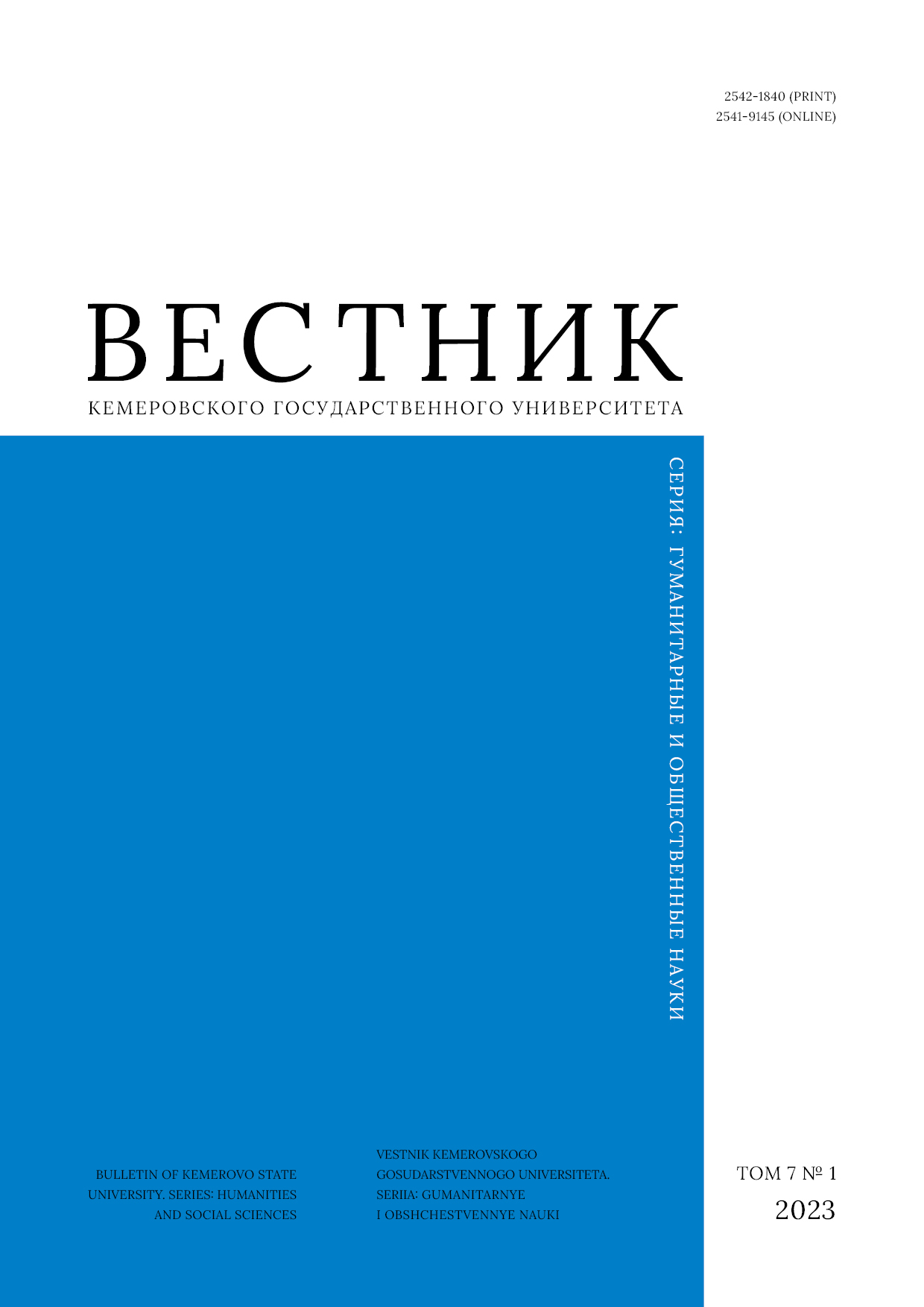Stavropol, Russian Federation
Stavropol, Russian Federation
from 01.01.2018 until now
Stavropol, Stavropol, Russian Federation
Digitalization has changed the methods of developing new skills and abilities in schoolchildren. New approaches have to be designed to plan training sessions and implant the basic ideas about professional competence. Modern supra-professional skills also require novel methods. This research featured digital didactic games as a means of developing supra-professional competencies. The authors reviewed available publications on professional and supra-professional competencies and their development methods. They described the semantic structure of the soft skills formation model through the use of digital didactic games. Didactic games are effective in developing soft skills and have a great digital potential, e.g., certain parts of a didactic game can be digitally personalized. The article describes didactic games, their requirements, and specific soft skills that are considered mandatory as part of supra-professional skills. The research relied on the principles of consistency and the holistic approach to academic processes, as well as on the connection between logic, history, theory, and practice. The article can help educators to develop new didactic games for various disciplines.
soft skills, supra-professional competencies, digital games, digitalization of education
1. Sorokopud Yu. V., Amchislavskaya E. Yu., Yaroslavtseva A. V. Soft skills and their role in training modern. Mir nauki, kul′tury, obrazovaniya, 2021, (1): 194-196. (In Russ.) https://doi.org/10.24412/1991-5497-2021-186-194-196
2. Kruglikova G. A. Development of soft skills of participants in educational activities of a pedagogical university in the framework of competitions of professional skills "Teacher of the Future". Vestnik Naberezhnochelninskogo gosudarstvennogo pedagogicheskogo universiteta, 2021, (S2-2): 39-43. (In Russ.) EDN: https://elibrary.ru/WOJCPV
3. Romanenko V. S. Computer didactic games as a means of developing elementary mathematical concepts in preschool children. NovaInfo, 2016, (45): 260-263. (In Russ.) EDN: https://elibrary.ru/VWATFH
4. Bolshakova Z. M., Tulkibaeva N. N. Competences and competency. Bulletin of the South Ural State University. Ser. Education. Educational Sciences, 2009, (24): 13-19. (In Russ.) EDN: https://elibrary.ru/KXJZCZ
5. Markushevskaya E. A., Nikandrova A. V. Didactic game as a means of forming communicative universal lessons for primary schoolchildren. Obuchenie i vospitanie: metodiki i praktika, 2016, (26): 63-68. (In Russ.) EDN: https://elibrary.ru/VTZQFX
6. Unarova R. S. Developing soft skills in schoolchildren through models of intellectual and business games. Modern school as a result of the development of the pedagogical system in the context of the implementation of the Federal State Educational Standard: Proc. Sci.-Prac. Conf. with Intern. Participation, Yakutsk, 26 Mar 2021. Yakutsk: NEFU, 2021, 86-90. (In Russ.) EDN: https://elibrary.ru/UWTLLJ
7. Fasolya A. A. Humanization of education as the main determinant of personality development. Obrazovanie i nauka v Rossii i za rubezhom, 2019, (2): 505-510. (In Russ.) EDN: https://elibrary.ru/YWJWEH
8. Petlina E. M., Khatagova S. V. Informatization of education as a basic principle the formation of specialist skills. Innovatsii v obrazovanii, 2017, (3): 124-133. (In Russ.) EDN: https://elibrary.ru/XXRLYB
9. Fomina S. N., Dobrynin K. A., Grigorieva I. G. Systematization of the definition of "soft skills" in domestic and foreign scientific literature. Uchenye zapiski Rossijskogo gosudarstvennogo social'nogo universiteta, 2021, 20(1): 156-163. (In Russ.) https://doi.org/10.17922/2071-5323-2021-20-1-156-163
10. Baranov A. V., Medyakova E. M., Kislitskaya N. A., Babanov A. B., Kotlyarova O. V., Krivosheeva T. D., Litvinova S. A., Nikonenko N. D., Tagaev A. V., Tiratsuyan V. Kh. Soft skills in working with digital resources. Digital and project management. Rostov-on-Don: SRIM RANEPA, 2021, 209-239. (In Russ.) EDN: https://elibrary.ru/BUZVFX
11. Khlebnikova E. P., Miroshnikova O. A. Application of communication and research "soft-skills" in the implementation of modern educational technologies. Aktualnye voprosy obrazovaniia, 2021, (2): 50-54. (In Russ.) EDN: https://elibrary.ru/NLUUWN
12. Savelev M. E. Universal learning activities for soft skills development in students. Voprosy pedagogiki, 2022, (6-2): 147-153. (In Russ.) EDN: https://elibrary.ru/WFOGPU
13. Demidenko L. V. The value of didactic games in the development of children. Problemy pedagogiki, 2020, (1): 47-49. (In Russ.) EDN: https://elibrary.ru/HNDHUJ
14. Shmakov S. A. Student games are a cultural phenomenon. Moscow: Novaia shkola, 1994, 240. (In Russ.) EDN: https://elibrary.ru/JHVMPJ
15. A. S. Makarenko′s ideas about education, comp. Latyshina D. I. Moscow: Shkolnaia Pressa, 2003, 192. (In Russ.)
16. Competence model of the digital transformation team in the public administration system, eds. Shklyaruk M. S., Garkusha N. S. Moscow: RANEPA, 2020, 84. (In Russ.)
17. Bakurova O. N., Puzanova E. D. The "soft skills" formation of high school students with different levels of knowledge engineering skills and competence. World of Science. Pedagogy and psychology, 2019, 7(6). (In Russ.) URL: https://mir-nauki.com/PDF/100PSMN619.pdf (accessed 13 Jun 2022). EDN: https://elibrary.ru/BQWPKL
18. Kataeva L. N., Terekhova N. N. Formation of soft skills in students of institutions of additional education through gaming activities. Obrazovanie i vospitanie, 2020, (3): 52-54. (In Russ.) EDN: https://elibrary.ru/SNFSDS
19. Ryleeva A. S., Khomutnikova E. A., Emanova S. V. Developing soft skills in high school students using digital tools. Science for Education Today, 2022, 12(1): 77-98. (In Russ.) http://dx.doi.org/10.15293/2658-6762.2201.04
20. Kitaygorodskiy M. D. Soft skills as a successor of universal educational actions in the digitalization of technological education. Informatika v shkole, 2021, (2): 28-31. (In Russ.) https://doi.org/10.32517/2221-1993-2021-20-2-28-31
21. Borodina T. F. Determining the role of creative thinking in the structure of soft skills. Innovatsii. Nauka. Obrazovanie, 2021, (34): 179-183. (In Russ.) EDN: https://elibrary.ru/URMYNX
22. Kvashchenko I. V., Sakunovskaia M. A., Ladychina A. V., Matveenko A. D., Balaeva-Tikhomirova O. M. Experience in quest technologies in the formation of soft skills in graduate students. Voprosy pedagogiki, 2022, (5-2): 121-126. (In Russ.) EDN: https://elibrary.ru/NBIMHO
23. Nikonova T. P. Methodical development of classes for the development of soft skills competencies. Professionalnaia orientatsiia, 2022, (1): 32-35. (In Russ.) EDN: https://elibrary.ru/UXTMSY
24. Omarova K. A. Diagnostic assessment of the formation of meta-subject competencies (soft-skills) for young students on the basis of a digital platform. Modern Scientist, 2021, (6): 231-234. (In Russ.) EDN: https://elibrary.ru/LJXXYD
25. Trukhanova A. D. Methods of soft skills assessment. Akademicheskaia publitsistika, 2022, (2-1): 229-232. (In Russ.) EDN: https://elibrary.ru/YIDSYB
26. Leontyeva E. G., Bogdanova A. G., Khachin S. V. Building soft skills of students at a technical university. Edulearn 19 Proceedings: 11th Intern. Conf. on Education and New Learning Technologies, Palma, 1-3 Jul 2019. IATED Academy, 2019, 2685-2690. https://doi.org/10.21125/edulearn.2019.0731


















